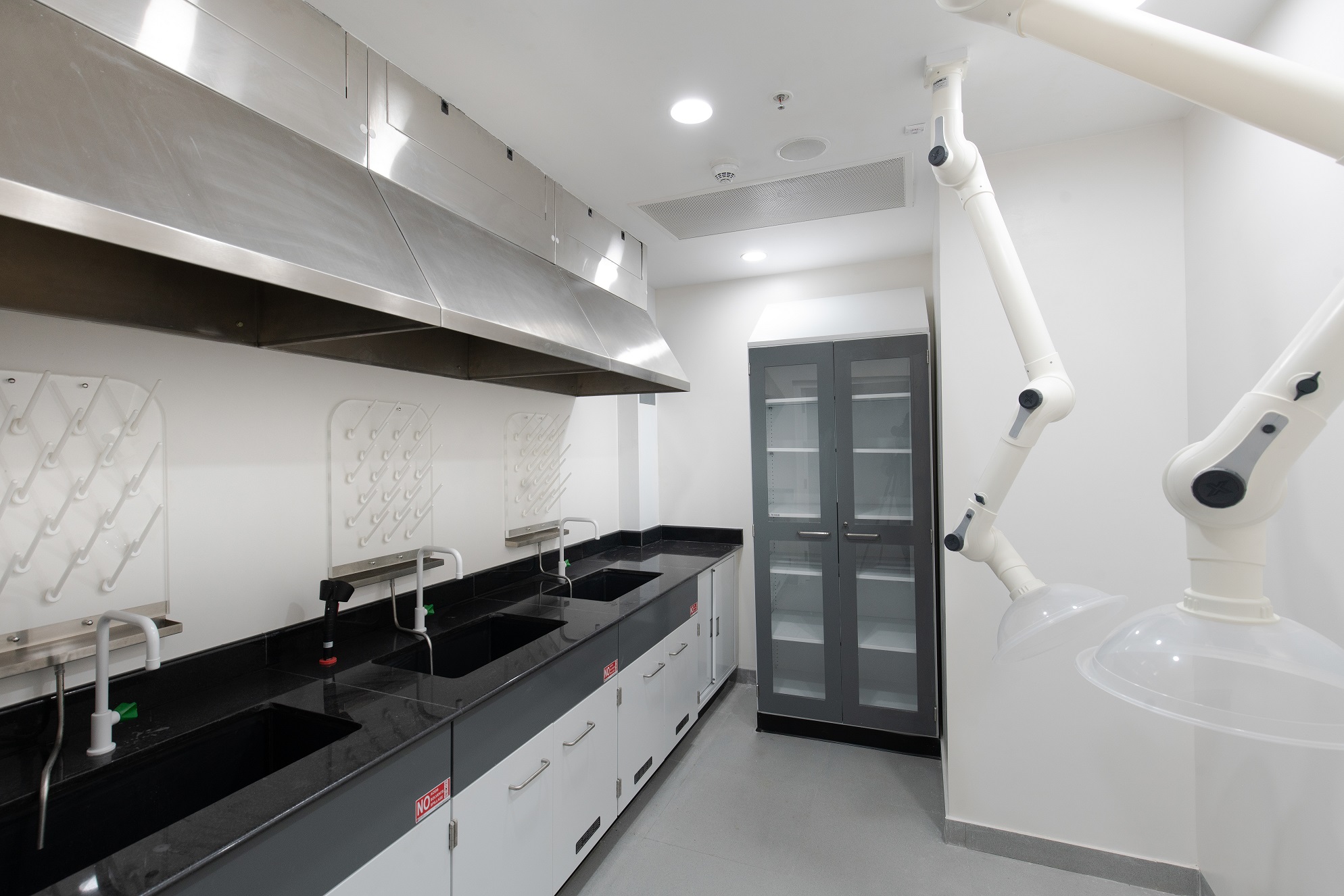Type of Laboratory Worktops & Their Selection Criteria
Worktop (or work surface) is a horizontal surface supported by drawers and cabinets. The surface is positioned in a way so that the people and the things interact most efficiently and safely. Someone design differently for different areas such as laboratories and general workrooms to arrange and organize things on it and to work easily on it.
Different laboratories have different worktops, and the choice of worktops depends on the work performed in a laboratory. Laboratories are more advanced now with modular configurations to enable flexible lab spaces.
WORKTOP MATERIALS
A worktop is constructed of a wide range of materials. Factors such as material of construction, durability influence the cost of the worktops. Common worktop materials include:
- Natural stones
- Wood
- Stainless steel
- Plastic laminate
- Epoxy resin
- Phenolic resin
- Ceramics
CHOOSING A LABORATORY WORKTOP
Depending on the need, every laboratory has a choice of which type of worktop is best suited for them. Every lab planner must factor in the type of lab and the nature of experiments carried out, to select the worktop. The most important factors to consider are:
- Chemical resistance
- Abrasive resistance
- Heat resistance
- Impact resistance
- Moisture resistance
- Bacteria
- Type of use
- Furniture style
- Costs
While choosing a laboratory worktop it should be considered that a high-quality laboratory worktop should be selected that will provide the best return on investment. For the best return on investment, we will have a closer look at different worktops that are highly recommended for the best quality.
TYPES OF WORKTOPS
Epoxy Resin Lab Worktop
Epoxy resin is one of the most familiar and practical materials for lab use. Epoxy resin is well suited under harsh and extreme conditions. With many applications, epoxy is extremely compatible with fixed casework. Since the cabinetry isn’t intended to be moved, the worktop seams are often filled and joined to form a more monolithic surface. The thickness of epoxy worktops is one inch, which is very heavy. One inch thickness of epoxy resin weighs 11 pounds per square foot. Epoxy resin is formed from the mixing of different compounds in the liquid form and then poured into molds to cure and harden. Most commonly, epoxy in labs is in black. The salient features of epoxy resin are that it is heat resistant, bacterial resistant, corrosive resistant, chemical resistant, and flame retardant. It is easy to clean and maintain.
Phenolic Resin Worktops
Phenolic Resin is another worktop material which has been around for decades. Phenolic resin is lighter as compared to epoxy resin. Multiple layers of partially recycled paper are soaked into phenolic resin, and then placed under extreme heat. After that it appears as a solid material. The top of the layer has different colors while the core is typically black. Lab planners usually prefer monochromatic top. One inch thickness of phenolic resin weighs 7.2 pounds per square foot. The features of phenolic resign include bacterial resistant, chemical resistant, moisture resistant, moderate to high corrosive resistance, continuous heat exposure up to 350 °F and scratch resistance. It is mainly used in biological, chemical, clinical, and analytical labs.
Stainless Steel Worktops
Stainless Steel worktops are best in hygienic and anti-microbial properties. It is made up of chromium and nickel that protects from rust and corrosion and makes it heat resistant. Commonly used in biomedical labs, pharmaceutical labs, food testing labs, and hospitals. It has a non-porous surface. It can handle high temperatures above 1500 °F. It is easily cleanable and long-lasting.
Chemical Resistant Laminate Worktops
Chemical Laminate worktop is made by applying a synthetic resin over a decorative surface paper which is attached to the core of the kraft paper coated with phenolic resin that gives a decorative worktop that is highly resistant to chemicals. The heat exposure is up to 275°F. It is preferred in those labs where the results depend on non-contamination like in dental labs, pathology labs, urology labs, photographic darkrooms, and product testing labs.
Wood Worktops
Hardwood surfaces comprise rock maple that is sturdy and long-lasting. True woods are made with the end grain of the wood by gluing together smaller woodblocks. It has poor moisture resistance and bacterial resistance. It gives a warm and rich look. It is mostly used in mechanical labs.
For a wide choice of worktops for your laboratory & detailed technical specification, check out the products page.
Comments are closed.











